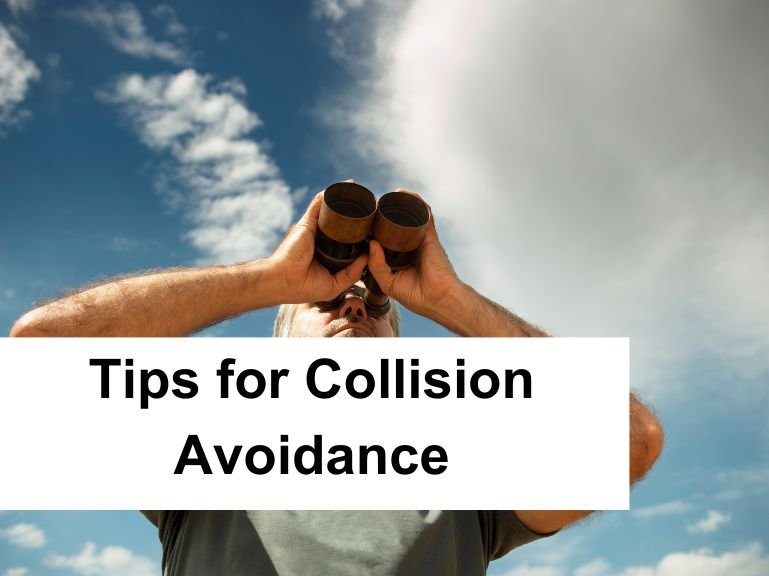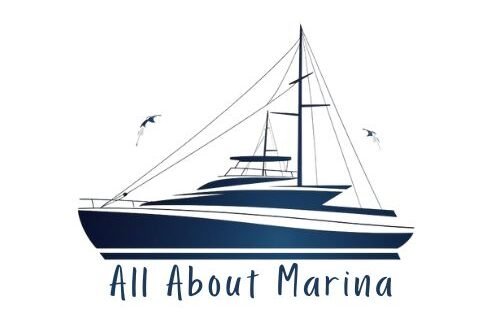Essential Tips for Collision Avoidance on the Water: Navigate with Confidence
The open waters provide a vast expanse of freedom and adventure, beckoning boaters to explore its depths and hidden wonders. However, this freedom comes with inherent risks, particularly the potential for collisions with other vessels or stationary hazards. Collisions are the leading cause of boating accidents, resulting in injuries, fatalities, and significant property damage. Understanding the principles of collision avoidance and adhering to boating safety regulations can transform your nautical adventures into safe and enjoyable experiences.

The Importance of Collision Avoidance
Collisions can arise from various situations, including:
- Meeting and Crossing Situations: When two boats are approaching head-on or on converging courses.
- Overtaking Situations: When one vessel is passing another vessel.
- Contact with Fixed Objects: Striking bridges, piers, underwater obstructions, or marine structures.
The Consequences of Collisions
The consequences of collisions can be severe, affecting both individuals and the environment:
- Injuries and Fatalities: Collisions can cause serious injuries or even fatalities to boaters and passengers.
- Damage to Vessels and Property: Boats can sustain significant damage, affecting their structural integrity and overall value.
- Environmental Disruption: Collisions can cause pollution, damage to marine life, and disrupt delicate ecosystems.
- Financial Liability: The responsible party may face significant financial repercussions due to property damage, legal fees, and potential personal injury claims.
The Role of Rules and Regulations
To mitigate the risks of collisions and promote safe navigation, international maritime regulations, the International Regulations for Preventing Collisions at Sea (COLREGS), have been established. These rules outline specific responsibilities and maneuvers for vessels in various situations to minimize the likelihood of collisions.
You can read more about rules and regulations in this blog
The International Regulations for Preventing Collisions at Sea (COLREGS)
The COLREGS are divided into four sections:
- General: Establishes general principles of navigation, including maintaining a proper lookout, using all available means to assess collision risk, taking proactive measures to avoid collisions, maintaining a safe speed, and avoiding impeding other vessels.
- Rules for Meeting and Crossing: Defines the responsibilities of vessels approaching each other from opposite directions or converging paths.
- Rules for Overtaking: Stipulates the actions of vessels passing another vessel.
- Special Circumstances: Covers specific situations, such as vessels not under command, restricted in maneuverability, engaged in fishing, or towing operations.
Precautionary Measures for Collision Avoidance
Beyond adhering to the COLREGS, practicing prudent boating habits can further enhance collision avoidance:
- Proper Lookout: Maintain a vigilant watch for other vessels, obstacles, and hazards using binoculars, radar, and visual scanning.
- Effective Signaling: Utilize your horn, whistle, and navigation lights to communicate your intentions to other boaters.
- Safe Speed: Adapt your speed to maintain a safe distance from other vessels and obstacles.
- Adequate Navigation Equipment: Equip your vessel with the necessary navigation tools, including charts, compass, and depth sounder.
- Familiarity with Local Waters: Gain knowledge of the waterways you will navigate, including hazards, navigational aids, and local regulations.
In this blog, we cover essential tools to have on a boat
Navigational Hazards
While adhering to collision avoidance principles and practicing safe boating habits are crucial, awareness of navigational hazards is equally important:
- Bridges and Overhead Obstruction: Maintain a safe distance from bridges and overhead structures to avoid collision or entanglement.
- Overfalls and Shoals: Be alert for sudden changes in water depth, such as overfalls and shoals, that can cause loss of control or grounding.
- Underwater Cables and Pipelines: Avoid anchoring or maneuvering over underwater cables or pipelines to prevent damage and potential safety hazards.
- Marine Life: Be mindful of marine life, particularly in shallow waters or areas with designated marine sanctuaries. Respect the habitat and avoid activities that could harm marine life.
Additional Safety Tips for Collision Avoidance
Beyond the aforementioned measures, consider these additional tips to enhance your safety on the water:
- Avoid Alcohol Consumption: Alcohol impairs judgment and reflexes, increasing the risk of collisions.
- Effective Communication: Communicate effectively with other boaters using visual signals, radio, or VHF radios.
- Be Prepared for the Unexpected: Always be prepared for unforeseen circumstances, such as sudden weather changes or equipment failures.
By following these collision avoidance principles, practicing precautionary measures, and staying vigilant, you can minimize the risk of collisions and ensure safe, enjoyable boating experiences for yourself and others. Remember, safety on the water is a shared responsibility, so be courteous
FAQ
Q: What is the most important thing to do to avoid collisions while boating?
A: The most important thing to do to avoid collisions while boating is to be aware of your surroundings and take proactive measures to avoid other vessels and hazards. This includes maintaining a proper lookout, using the appropriate signaling devices, maintaining a safe speed, and being familiar with the local waterways and regulations.
Q: What are the different types of collisions that can occur while boating?
A: Three main types of collisions can occur while boating: meeting and crossing situations, overtaking situations, and collisions with fixed objects.
Q: What are the COLREGS?
A: The COLREGS are the International Regulations for Preventing Collisions at Sea. These rules are designed to help prevent collisions between vessels of all types, including ships, boats, and yachts. The COLREGS are divided into four parts: general, rules for meeting and crossing, rules for overtaking, and special circumstances.
Q: What is the general principle of navigation that all boaters should follow?
A: The general principle of navigation that all boaters should follow is to maintain a proper lookout by sight and hearing. This means that you should always be looking around for other vessels, obstacles, and hazards. You should also be using your ears to listen for other vessels’ horns and whistles.
Q: What are the rules for meeting and crossing situations?
A: When two vessels are approaching each other head-on or on converging courses, one vessel is the give-way vessel and the other is the stand-on vessel. The give-way vessel must take early and substantial action to avoid collision. The stand-on vessel must maintain its course and speed.
Q: What are the rules for overtaking situations?
A: When one vessel is passing another vessel, the overtaking vessel must keep out of the way of the overtaken vessel. This means that the overtaking vessel must not pass the overtaken vessel too closely or without giving the overtaken vessel enough time to react.
Q: What are some navigational hazards that boaters should be aware of?
A: Some of the navigational hazards that boaters should be aware of include bridges, piers, underwater obstructions, and marine structures. Boaters should also be aware of sudden changes in water depth, such as overfalls and shoals.
Q: What is the most important thing to do if you think you are going to have a collision?
A: The most important thing to do if you think you are going to have a collision is to sound your horn or whistle and take immediate action to avoid the collision. This may involve changing your course or speed.
Q: What are some additional tips for boaters to avoid collisions?
A: Some additional tips for boaters to avoid collisions include avoiding alcohol consumption while boating, communicating effectively with other boaters, and being prepared for the unexpected.
